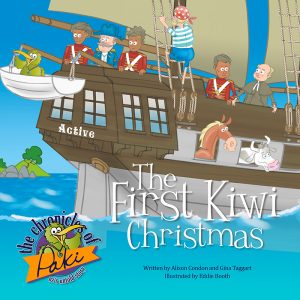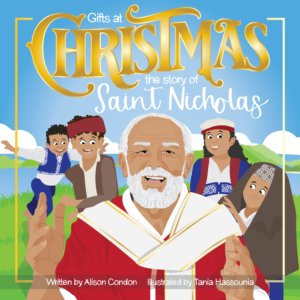
12 Dec, 2023 Gospel communication at Christmas – with Dave
Gospel communication at Christmas
Like many of you, I’ve had opportunity to communicate with a wide range of audiences around Christmas – and I always want to see that the Christian faith and Christ himself are esteemed – especially in secular environments.
This brief article has TWO things.
- “Three stories” – for Christmas
- A revealing of the fact that Christmas and Easter are CULTURAL festivals – and how this opens a significant door for communication.
Caveat: I note that in this I am assuming the reader knows what the gospel message is, and that local churches are ALREADY explaining this core message simply within weekend church services and via other platforms where appropriate, inviting responses, while maybe offering to lead in a simple prayer that could help a person ‘cement’ their own decision. I therefore don’t discuss any of this below.
Story #1 – is (of course) is about Jesus!
The key point of the story, however, isn’t merely the birth of Jesus. It is instead in WHO it is believed Jesus was!
It’s a profound story – begging the question, How could we know if it this seemingly crazy claim is true?
- Is it really possible that God is THAT loving and humble?
- (What evidence could you present – to make the story believable? – click here for more)

Story #2 – The story of Ruatara and Marsden
I regularly tell this story – because it is strategically significant to who we are as a nation. It also informs public perspectives regarding the place of our faith in this nation.
The first Christmas celebrated here was in 1814, because the first Christian service for Māori on this land just happened to be on Sunday 25th December!
The children’s story above (of Ruatara and Marsden’s friendship who led to Ruatara’s invitation) is a useful tool if presenting to children – while the upcoming 2024 Hope For All booklet is going to tell this same story.
This is a story the public will enjoy – it’s relevant to Christmas – and genuinely important regarding the place of the gospel in our nation!
Story #3 – The story of Saint Nicholas
Saint Nick’s story is – from a strategic perspective – one that we might be wise to value and tell more often.
To highlight the cultural relevance: This story sits in the origins of the most popular Christmas tradition our nation has – which is the Santa Claus tradition!
As a communication tip, when engaging with families and children I explain the connection by saying “Santa Claus looked up to Saint Nicholas as his idol” / “Saint Nicholas is the one who inspired Santa with some of his ideas.”
The children’s story above is new (click the image for details), but it’s not the only resource.
- You could alternatively equip yourself with some knowledge about Saint Nicholas via the Britannica.com or Wikipedia.org online – to then tell the story in your own words.
To reiterate the significance of this story:
- It will connect with a public audience – because it is the historic backdrop to our cultures current most popular Christmas icon!
- Our job is (I suggest) to augment the public perspective – that Jesus would again be seen. This story helps to re-establish that connection!
Christmas and Easter are actually CULTURAL festivals
(What’s the relevance of this?)
Before someone gives their life to Christ they usually first develop a positive view of Christ and the Christian faith.
To highlight a point that isn’t yet in public conversation:
The Bible never tells us to celebrate Jesus’ birth with a festival – nor even his death and resurrection!
- Instead we are told to remember his sacrifice as often as we meet and eat together (Communion).
What then does that make Christmas and Easter?
- They are CULTURAL festivals!
- Put differently, they are religious festivals that our CULTURE chose to embrace – because it saw reason to esteem Jesus!
To expand this, what is the purpose of a cultural festival?
- They are created within a culture to help its members remember, value and know about something from their history that is believed to be important to their continued identity and values!
- Consider also Waitangi Day, Matariki, Kings Birthday, ANZAC Day, Labour Day.
- Each represents knowledge and a value, to help sustain that value within our culture.
Are we allowed to establish our own cultural-religious festivals?
- Yes! “One person considers one day more sacred than another; another considers every day alike. Each of them should be fully convinced in their own mind.” (Romans 14:5)
- E.g. Jesus celebrated Hanukah / The Festival of Dedication – which was not a prescribed religious festival in the Old Testament (John 10:22-24).
Why then might our culture have esteemed Jesus in the past – resulting in these two public festivals?
- Consider: We didn’t become one of the most prosperous, free, equality-based and charitable nations on the planet – and in all of human history – by accident!
- His significance to our culture is huge.
- It’s just that it is now largely untold by us, and unknown!
- The opporutnity – and warning – is this:
- Those who tell the history write the future.
- Concurrently- those who control the present, control the past!
- NZers haven’t been educated regarding their cultural history. (We are part of a wider culture that is being taught to despise it’s past, and to despise itself).
- If we don’t tell these stories, no one else will!
- His significance to our culture is huge.
- There is therefore a story to tell here – which relates directly to why Christmas and Easter are celebrated!
To resource you
1. Short stories – to take and use
Without any desire for self-promotion, the Hope For All booklets intentionally told stories from our nation’s history regarding our national values. Prior booklets covered topic areas including charity, healthcare for all, education for all, the end of slavery and equality of races, the equality of genders, personal freedoms and more – plus various stories connected to our bicultural history.
- The research is therefore done for – because all you need as a communicator are simple stories to tell!
- The booklets are therefore a RESOURCE to extract short stories from on these cultural topics: HopeProject.co.nz/ebooks.
- The ‘A minute in history’ radio series tells the same stories – and additional ones. The 1min radio pieces are available on line via HopeProject.co.nz/a-minute-in-history/
I would encourage that this is ‘core content’ for any communicator who engages with non-believers. These stories give you
- …things to say that people will be genuinely interested in
- …that concurrently raise the esteem of Jesus in the public view.
2. For further reading we suggest the following:
- Re our NZ values history:
- Jesus the Gamechanger, (DVD documentary series) Karl Faase.
- What if Jesus had never been born? D James Kennedy.
- Who Is This Man? John Ortberg.
- The Rise of Christianity, Rodney Stark.
- How Christianity Changed the World, Alvin Schmidt.
- Dominion, by Tom Holland
- Re our NZ bicultural history:
- Te Rongopai, (DVD documentary) Stuart Lange,
- The Chronicles of Paki, (Illustrated NZ history story series), Alison Condon and Gina Taggart with artist Tania Hassounia.
- Bible and Treaty, Keith Newman.
- The Years Before Waitangi, Patricia Bawden.
DAVE MANN. Dave is a networker and creative communicator with a vision to see an understanding of the Christian faith continuing and also being valued in the public square in Aotearoa-New Zealand. He has innovated numerous conversational resources for churches, and has coordinated various national nationwide multimedia Easter efforts purposed to open up conversations between church and non-church people about the Christian faith and its significance to our nation’s history and values. Dave is the Producer of the ‘Chronicles of Paki’ illustrated NZ history series created for educational purposes, and the author of various other books and booklets including “Because we care”, “That Leaders might last” and “The Elephant in the Room”. Married to Heather, they have four boys and reside in Tauranga, New Zealand.






